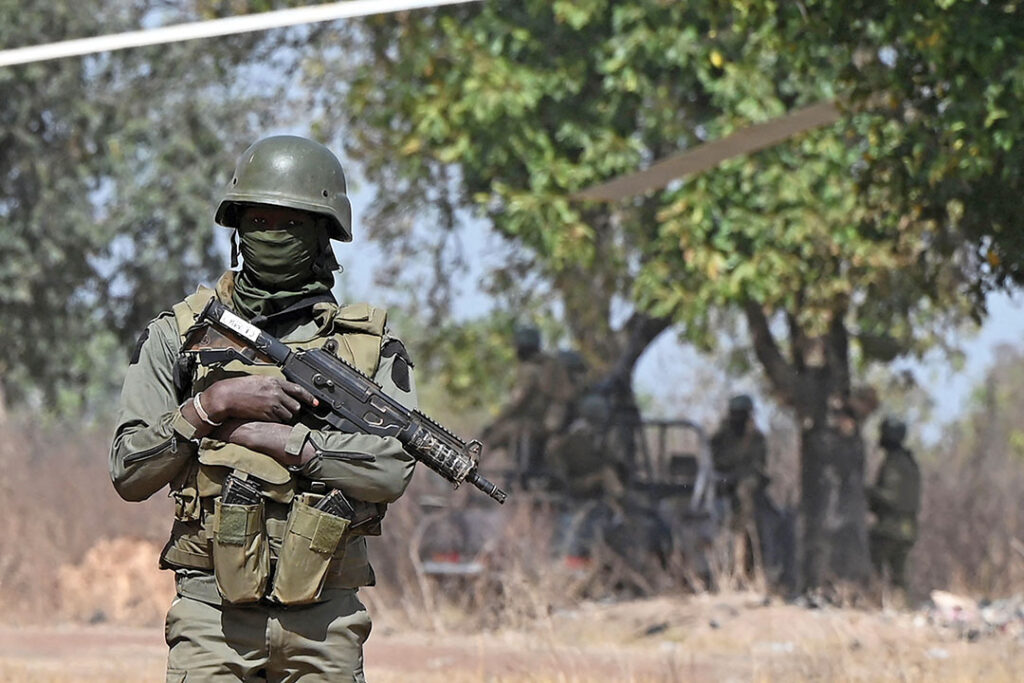ADF STAFF
Even though violent extremists plague its northern neighbors, Côte d’Ivoire has defended itself from terror attacks thanks to military intervention, enhanced security and investment in border areas.
“The goal is to reverse perceptions among border communities that the state has abandoned them,” analyst William Assanvo wrote for the Institute for Security Studies. “Doing so will reduce the risk that they are exploited by insurgents.”
Several Gulf of Guinea countries have similar dynamics: Wealth and economic investment is concentrated along the coast while the north tends to be poorer and less developed. That imbalance generates resentment that puts regions at risk of radicalization by extremists.
Côte d’Ivoire faced a terror attack in June 2021 when an explosive killed three Soldiers near the northeastern border community of Tehini close to Burkina Faso. Before that, a 2020 attack on a security post in Kafolo, also near Burkina Faso, killed 10 people.
Since those attacks, the Ivoirian government has boosted the military and security presence in Savanes and Zanzan districts that border Mali and Burkina Faso. Côte d’Ivoire continues to work with its neighbors under the Accra Initiative to detect and disrupt regional terrorism.
After the 2016 Grand Bassam attack, Côte d’Ivoire invested $137.2 million to fight terrorism. The funding established programs to equip and train special counterterrorism units, along with other measures to strengthen government ties with residents of northern districts.
The program invests in education, health care and key infrastructure. It also aims to develop apprenticeships and other employment for nearly 24,000 young people, Touré Mamadou, minister for the promotion of youth, professional integration and civic service, told broadcaster RTI.
The African Development Bank provided $10.53 million in 2022 to help provide electricity to 71,600 households and more than 7,100 business centers in the Savanes, Zanzan and Woroba districts. The program is part of a larger effort to reduce poverty in the north and, by extension, radicalization.
Ghanaian security expert Fidel Amakye Owusu sees rural electrification and economic investments like those in Côte d’Ivoire as crucial to preventing terrorism.

